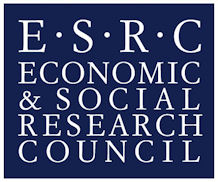The Economic and Social Research Council, in collaboration with the Arts and Humanities Research Council, under the partnership for conflict, crime and security research programme, invites applications for its transnational organised crime call. This funds innovative research and networking activities which address transnational organised crime, from a range of cross-disciplinary approaches and research perspectives. Applications from collaborative work between social scientists and arts or humanities researchers, working where appropriate with engineers and physical scientists, are welcome. The following topics will be considered:
•the illegal movement of people, goods and money across international borders;
•human trafficking and illicit trafficking of arms and drugs;
•cross-border money laundering, bribery, corruption and financing of criminal and terrorist networks;
•cyber enabled crime;
•international art, conservation and heritage crime;
•transnational sexual exploitation, and trade in counterfeit identities and goods.
Applications which explore linkages with other PaCCS themes will also be considered.
Collaborations with researchers and stakeholders beyond the UK is strongly encouraged reflecting the international nature of organised crime.
Awards are worth £100,000 each, at full economic cost, for a duration of 18 months. The council expects to fund approximately 10 projects.
For further details contact tnoc@esrc.ac.uk
Closing date 30 Mar 16







